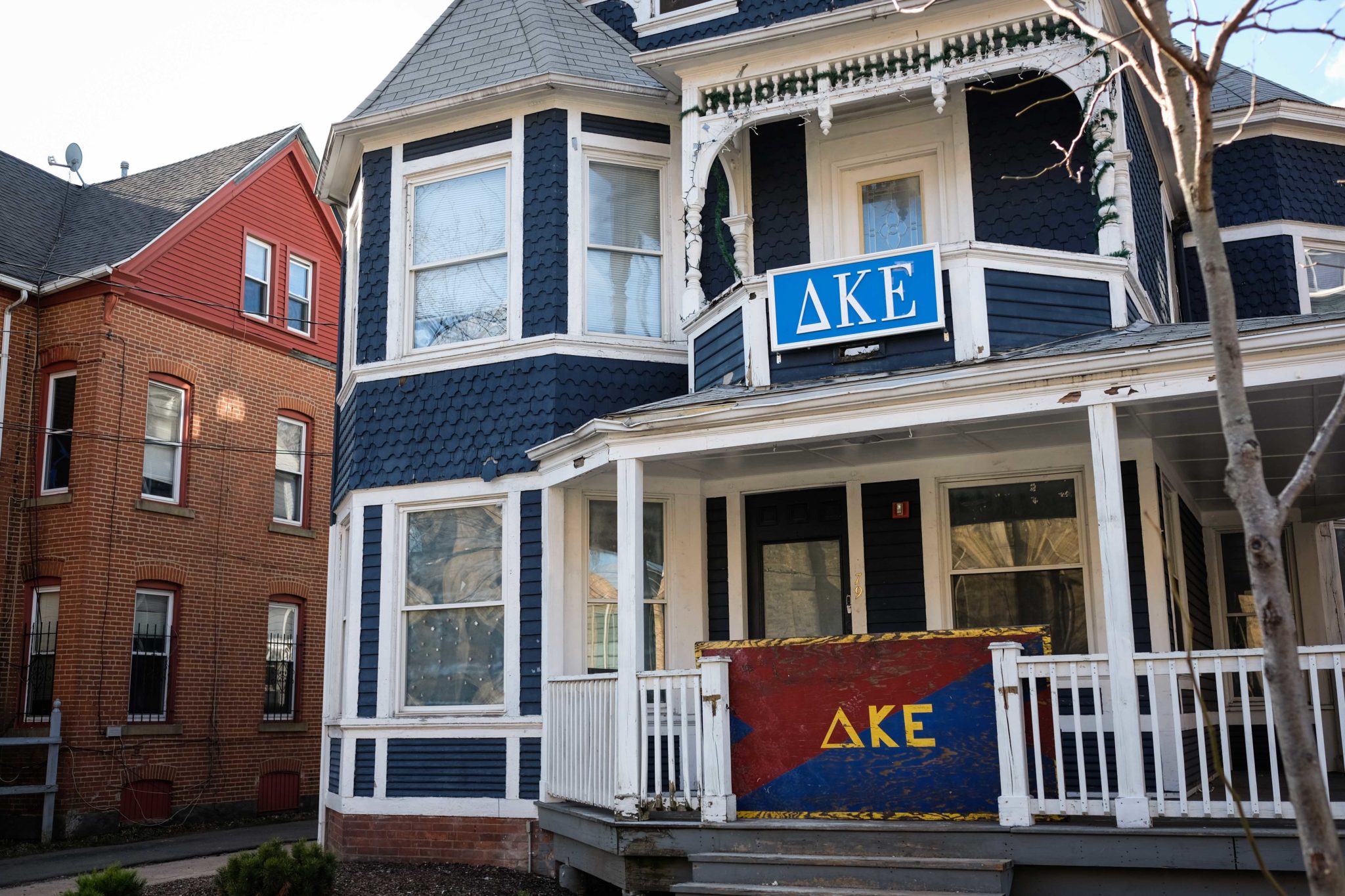
While Yale College Dean Marvin Chun condemned the culture of the Delta Kappa Epsilon fraternity — citing findings from a report released Monday — he maintained that the University will not punish the fraternity, adding that past punishments have done little to change the behavior of off-campus groups.
In his campus-wide email about the review, Chun advised students not to attend DKE parties, and on Monday, Chun told the News that he does not have legal standing to influence independent organizations like DKE. On Wednesday, Chun clarified that Yale has disciplined fraternities in the past, but these punishments did little to curb their activities. Still, legal experts interviewed by the News contended that Yale has the power and legal standing to issue specific, harsh disciplinary sanctions.
“While it is true that Yale has sanctioned unregistered organizations by banning them from engaging with students on campus, the bulk of fraternity activities occur off campus, so these kinds of sanctions have little effect in limiting them, particularly since they don’t rely on Yale College resources,” Chun wrote in an email to the News on Wednesday.
According to Chun, Yale College will prioritize fostering social life on campus over attempting to regulate off-campus life. He added that he has already begun collaborating with heads of college and students to offer more social events in the residential colleges.
Still, the administration’s approach to the review’s findings differs from its 2011 disciplinary reaction to another DKE controversy. After DKE pledges chanted “no means yes, yes means anal” outside the Women’s Center, then-Dean of Yale College Mary Miller imposed a five-year ban on DKE, preventing the group from associating itself with Yale, holding on-campus events and using Yale emails or bulletin boards to communicate with students. But when the ban expired, administrators and students alike acknowledged that its execution went largely unnoticed.
“We wrestle with it,” former Yale College Dean Jonathan Holloway told the News in 2016, when asked about the efficacy of bans on campus groups. “We can only do so much to stop behavior.”
Yale imposed a similar 18-month ban on the Sigma Alpha Epsilon fraternity in 2015 after deciding that the fraternity had violated University sexual misconduct policy. SAE later disaffiliated from its national organization and rebranded itself as LEO. A former LEO president told the News that the ban had not affected the fraternity “that much” as LEO, like all fraternities, operates off campus.
In December 2017, Harvard imposed controversial sanctions on fraternities and all other single-gender social organizations. The sanctions prohibit members of single-gender groups from holding leadership positions on campus, becoming varsity athletic team captains and receiving endorsement from Harvard for prestigious fellowships.
Now, Harvard faces twin lawsuits in both federal and state court by multiple sorority and fraternity organizations, as well as three current Harvard students. The federal suit asserts that Harvard’s sanctions are a form of sex-based discrimination and violate Title IX and the U.S. Constitution. The state suit alleges that the sanctions violate the Massachusetts Civil Rights Act and the Massachusetts Constitution as students receive unequal treatment on the basis of sex.
“It is baffling that Harvard boasts that its students are among the brightest minds in the world, yet administrators won’t trust them to make decisions about how they choose to associate with one another,” said Judson Horras, president and CEO of the North-American Interfraternity Conference, in a press release.
However, two lawyers and a law professor interviewed by the News agreed that private institutions like Yale and Harvard are legally permitted to prohibit their students from belonging to Greek organizations.
Douglas Fierberg, a lawyer who specializes in sexual misconduct cases involving fraternities, agreed that while universities may have limited options for punishing a fraternity directly, they “definitely have jurisdiction over off-campus life.” Other schools like Princeton have successfully cracked down on Greek life — without banning it outright — with no legal troubles, he said. Princeton has a long-standing policy of refusing to recognize fraternities and sororities, and in 2012, the university prohibited its freshmen from affiliating with Greek organizations. Michele Dauber, a Stanford law professor and Title IX expert, agreed that she strongly believes Harvard’s new policy is lawful, and private schools have the ability to choose whether students involved in single-gender organizations can hold leadership roles.
According to Dauber, some states differ on the extent to which the First Amendment applies to private institutions, but “in general private schools retain tremendous authority to determine and control student conduct.”
David Easlick, who served as DKE’s executive director for 20 years and now works as a lawyer and consultant on fraternity cases, added that several other universities have sanctioned Greek organizations without facing legal retribution, and Yale has the “absolute right” to discipline DKE or any other fraternity. Amherst College, for instance, banned students from joining fraternities and sororities in 2014, following a suggestion from the school’s Sexual Misconduct Oversight Committee.
Some lawsuits, however, have been successful in challenging private universities’ policies on Greek life. Wesleyan University ordered fraternities to become coedl in 2014. In 2017, however, a jury sided with DKE in its suit against Wesleyan over the forced closure of the DKE chapter house. The jury found that Wesleyan had violated the Connecticut Unfair Trade Practices Act and interfered with DKE’s business relationships, awarding DKE’s Wesleyan alumni association $386,000 in damages.
Easlick, however, argued that the lawsuit against Wesleyan succeeded because it was primarily a property dispute. Wesleyan, unlike Yale, requires undergraduates to remain on campus for all four years. In 2015, Wesleyan administrators revoked DKE’s status as an acceptable option for housing, claiming that the chapter had not made a conscious effort to meet the new policy requiring fraternities to admit women. The fraternity argued that they had, pointing to plans they submitted to the university.
Doug Lanpher, executive director of DKE’s national organization, did not respond to request for comment on Chun’s statement on DKE.
DKE was founded in 1844 at Yale.
Alice Park | alice.park@yale.edu







